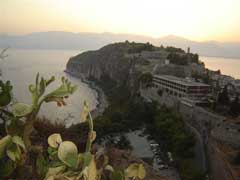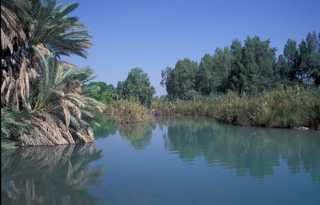 The Stockholm Statement: Message from World Water Week to the COP-15
The Stockholm Statement: Message from World Water Week to the COP-15
At the close of the recent World Water Week in Stockholm, the assembled participants unanimously voted to support a message from the Week stating that water must be included in the upcoming COP-15 climate deliberations in Copenhagen. Now commonly known as the “Stockholm Statement,” the document and its principles have been the subjects of media coverage and commentary worldwide.
A number of influential organizations have publicly gone on record with comments about the statement. These include: The Stockholm International Water Institute, the Cooperative Programme on Water and Climate, WWF, IUCN - the International Union for Conservation of Nature, Conservation International, and the World Business Council for Sustainable Development.
Further comments are expected in the months leading up to COP-15 in December.
--
--------------------------------------------------------------------------------------------------------
The Stockholm Message from World Water Week to the COP-15
--------------------------------------------------------------------------------------------------------
Introduction
----------------------
Climate change is happening and adding complexity to existing global challenges. A strong and fair agreement on future global commitments on climate change measures-both mitigation and adaptation-is crucial in order to secure future water resource availability. The negotiations towards a Copenhagen Agreement are therefore of great concern to the global water community.
The importance of water must be properly and adequately reflected within the COP-15 agreement, and in processes beyond COP-15. In recent months substantial efforts have been undertaken to ensure that this is achieved including the Dialogue on Climate Change Adaptation for Land and Water Management, the 5th World Water Forum in Istanbul and during dialogues held at the Climate Change Negotiations.
Reflecting these efforts, and the urgent need to ensure that the global community is adequately prepared to respond to climate change, the following messages are conveyed from Stockholm to Copenhagen:
• Water is a key medium through which climate change impacts will be felt. Managing the resource effectively, including through well-conceived IWRM approaches and at a transboundary level, is central to successful adaptation planning and implementation, and to building the resilience of communities, countries and regions;
• Adaptation is a prerequisite for sustainable development and poverty reduction. Adaptation measures thus need proper integration within broader development goals and objectives, including the Millennium Development Goals;
• Integration of water with land and forest management is key to effective adaptation. We strongly endorse the Nairobi Statement on Integrated Land and Water Resources Management for Climate Change Adaptation; we also emphasize that water-related adaptation can and should support global mitigation actions;
• Ecosystem protection and sustainability is fundamental to adaptation and human development. We therefore urge increased efforts towards and investment in the protection and restoration of natural resources-including water-as an essential part of any adaptation process;
• Higher-quality information that is more effectively shared will strengthen responses. In particular there is a critical need for the water and climate communities to increase the sharing of information at all levels of policy and practice-from global to local, and from local to global;
• Vulnerability assessments and risk management are critical to sound adaptation practice. Knowing where and how the impacts of climate change are most likely to affect populations and ecosystems through the water cycle will help in the identification of areas for early intervention or ‘hot spots'; these include arid regions, areas highly dependent on groundwater, small island developing states, low-lying deltas and fragile mountainous areas;
• New and additional funds are essential. It is imperative that additional funding is allocated in support of developing adaptive strategies for vulnerable groups and ecosystems; there is a need for an initial mobilization of finance to assist vulnerable, low income countries already affected by climate change, followed by the establishment of a well-resourced mechanism for funding adaptation as part of ongoing climate negotiations.
Follow up
----------------------
We urge the global water and climate communities to look beyond COP-15 and work through dialogue to strengthen global mechanisms that can enhance collective action on water and adaptation. These should include, but not be limited to, better sharing of knowledge and technology in support of adaptation measures in developing countries, active support for capacity building and access to improved levels of financing.
Finally, the water community expresses its commitment to strengthening institutional cooperation at all levels between the climate, water and wider development communities under appropriate mechanisms and institutional arrangements in order to work more collectively to address the immense development challenges ahead.
| Contact information |
Anders Berntell, Executive Director, Stockholm International Water Institute
(email: anders.berntell@siwi.org) |
|---|---|
| News type | Inbrief |
| File link |
http://www.worldwaterweek.org/sa/node.asp?node=697 |
| Source of information | Stockholm International Water Institute |
| Keyword(s) | Climate change |
| Subject(s) | POLICY-WATER POLICY AND WATER MANAGEMENT , RISKS AND CLIMATOLOGY |
| Relation | http://www.emwis.net/thematicdirs/events/conference-parties-cop-fifteen-session-and |
| Geographical coverage | Sweden, International |
| News date | 07/09/2009 |
| Working language(s) | ENGLISH |
 you are not logged in
you are not logged in





